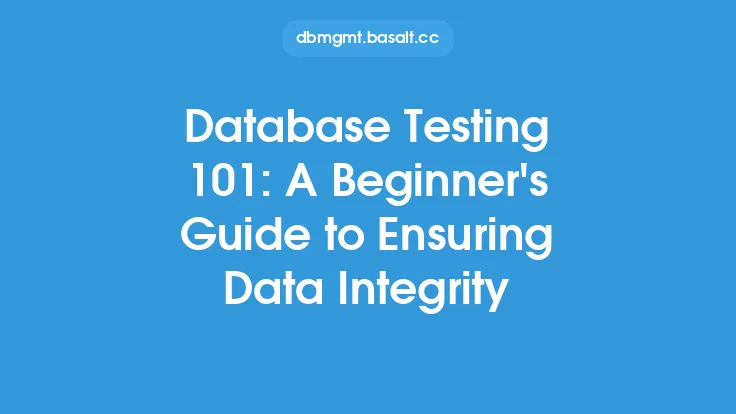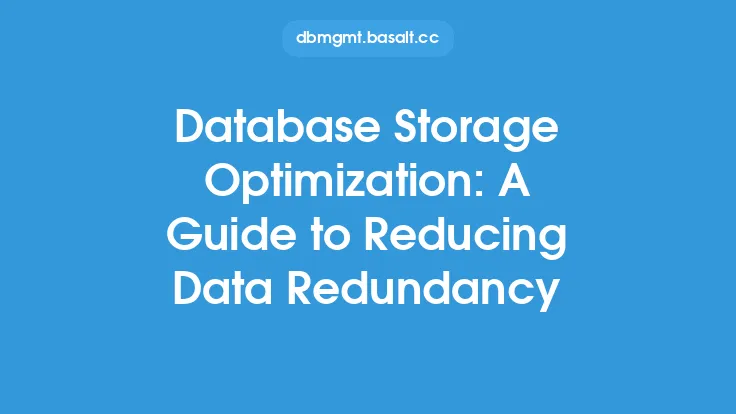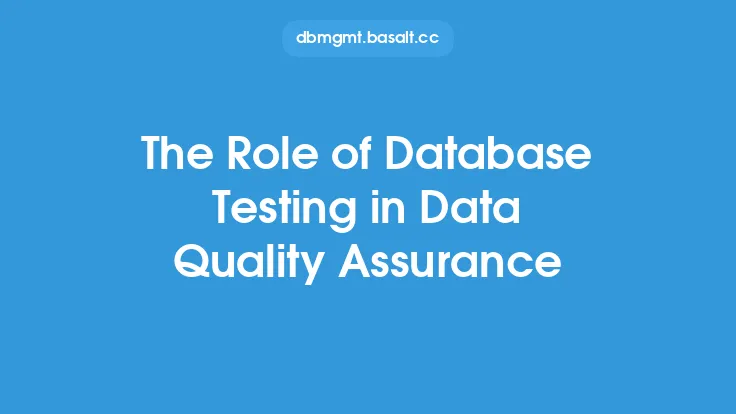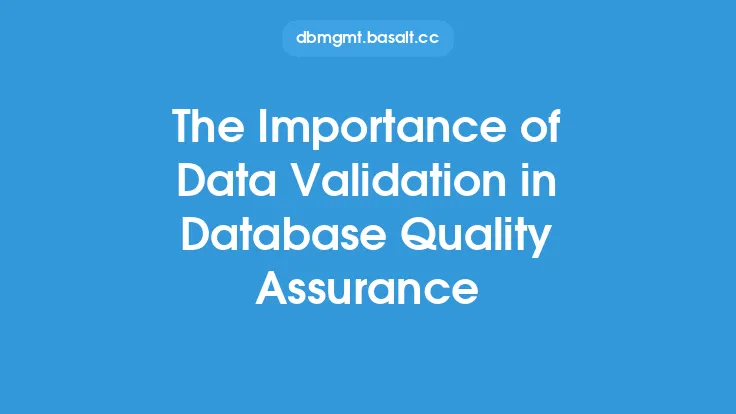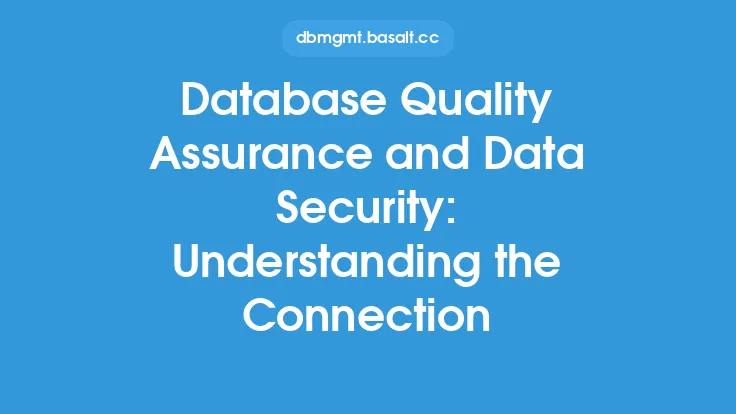Getting started with database quality assurance can seem like a daunting task, especially for those new to the field of database administration. However, it is a crucial aspect of ensuring the integrity and reliability of the data stored in a database. In this article, we will delve into the fundamentals of database quality assurance, exploring its importance, key concepts, and best practices for implementation.
Introduction to Database Quality Assurance
Database quality assurance is a systematic process designed to ensure that a database meets the required standards of data quality, integrity, and reliability. It involves a set of activities, procedures, and techniques aimed at preventing errors, inconsistencies, and inaccuracies in the data. The primary goal of database quality assurance is to guarantee that the data stored in a database is accurate, complete, consistent, and reliable, thereby supporting informed decision-making and business operations.
Key Concepts in Database Quality Assurance
Several key concepts are essential to understanding database quality assurance. These include:
- Data Integrity: Refers to the accuracy, completeness, and consistency of data within a database. It ensures that data is not corrupted or altered during storage or transmission.
- Data Quality: Encompasses the characteristics of data that make it suitable for use, including accuracy, completeness, consistency, and reliability.
- Data Validation: The process of checking data for correctness and consistency before it is entered into a database.
- Data Normalization: A technique used to organize data in a database to minimize data redundancy and dependency.
Importance of Database Quality Assurance
Database quality assurance is critical for several reasons:
- Informed Decision-Making: High-quality data is essential for making informed decisions. Poor data quality can lead to incorrect conclusions and decisions.
- Operational Efficiency: Accurate and reliable data ensures that business operations run smoothly and efficiently.
- Compliance and Regulatory Requirements: Many industries are subject to regulations that require data to meet specific standards of quality and integrity.
- Customer Satisfaction: In customer-facing applications, data quality directly impacts customer satisfaction and loyalty.
Best Practices for Database Quality Assurance
Implementing best practices is crucial for effective database quality assurance. Some of these practices include:
- Establishing Clear Data Standards: Define and enforce data standards across the organization to ensure consistency and accuracy.
- Implementing Data Validation and Verification: Use automated tools and manual checks to validate and verify data before it enters the database.
- Regular Data Audits: Conduct regular audits to identify and correct data errors, inconsistencies, and inaccuracies.
- Data Backup and Recovery: Ensure that data is backed up regularly and that recovery processes are in place to prevent data loss in case of failures or disasters.
- Training and Awareness: Provide training and awareness programs for staff on the importance of data quality and their roles in maintaining it.
Technical Aspects of Database Quality Assurance
From a technical standpoint, database quality assurance involves several key aspects:
- Database Design: A well-designed database with proper normalization, indexing, and constraints is fundamental to maintaining data integrity.
- SQL and Query Optimization: Efficient use of SQL and query optimization techniques can significantly impact data retrieval and manipulation, affecting overall database performance and data quality.
- Data Modeling: Accurate data modeling is essential for understanding data relationships and dependencies, which in turn helps in designing a robust database structure.
- Database Security: Implementing robust security measures, including access controls, encryption, and auditing, is critical for protecting data from unauthorized access, breaches, and corruption.
Challenges in Database Quality Assurance
Despite its importance, database quality assurance faces several challenges:
- Data Complexity: The increasing complexity of data, including big data and unstructured data, poses significant challenges for data quality assurance.
- Data Volume and Velocity: The high volume and velocity of data in modern databases require efficient and automated data quality assurance processes.
- Lack of Standards: The absence of universal data standards can lead to inconsistencies and inaccuracies, especially in integrated systems.
- Resource Constraints: Implementing and maintaining database quality assurance processes can be resource-intensive, requiring significant investments in technology, training, and personnel.
Conclusion
Database quality assurance is a vital component of database administration, ensuring that data is accurate, complete, consistent, and reliable. By understanding the key concepts, importance, and best practices of database quality assurance, organizations can implement effective processes to maintain high data quality. While challenges exist, the benefits of database quality assurance, including informed decision-making, operational efficiency, and compliance with regulatory requirements, make it an indispensable aspect of modern data management. As data continues to play an increasingly critical role in business operations and decision-making, the importance of database quality assurance will only continue to grow.
